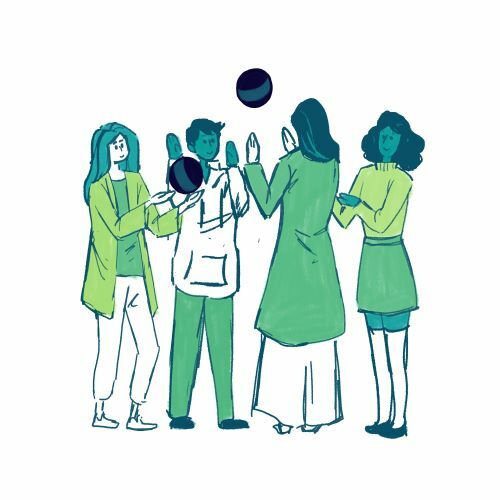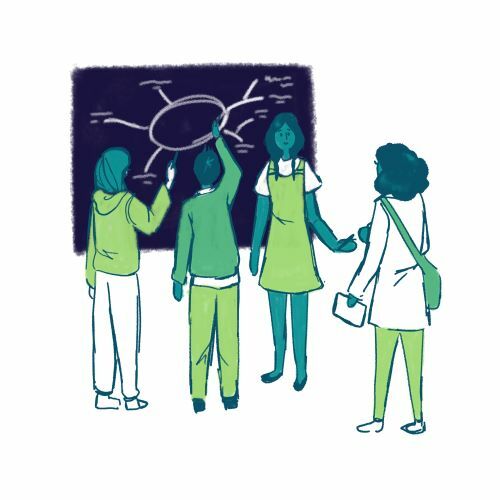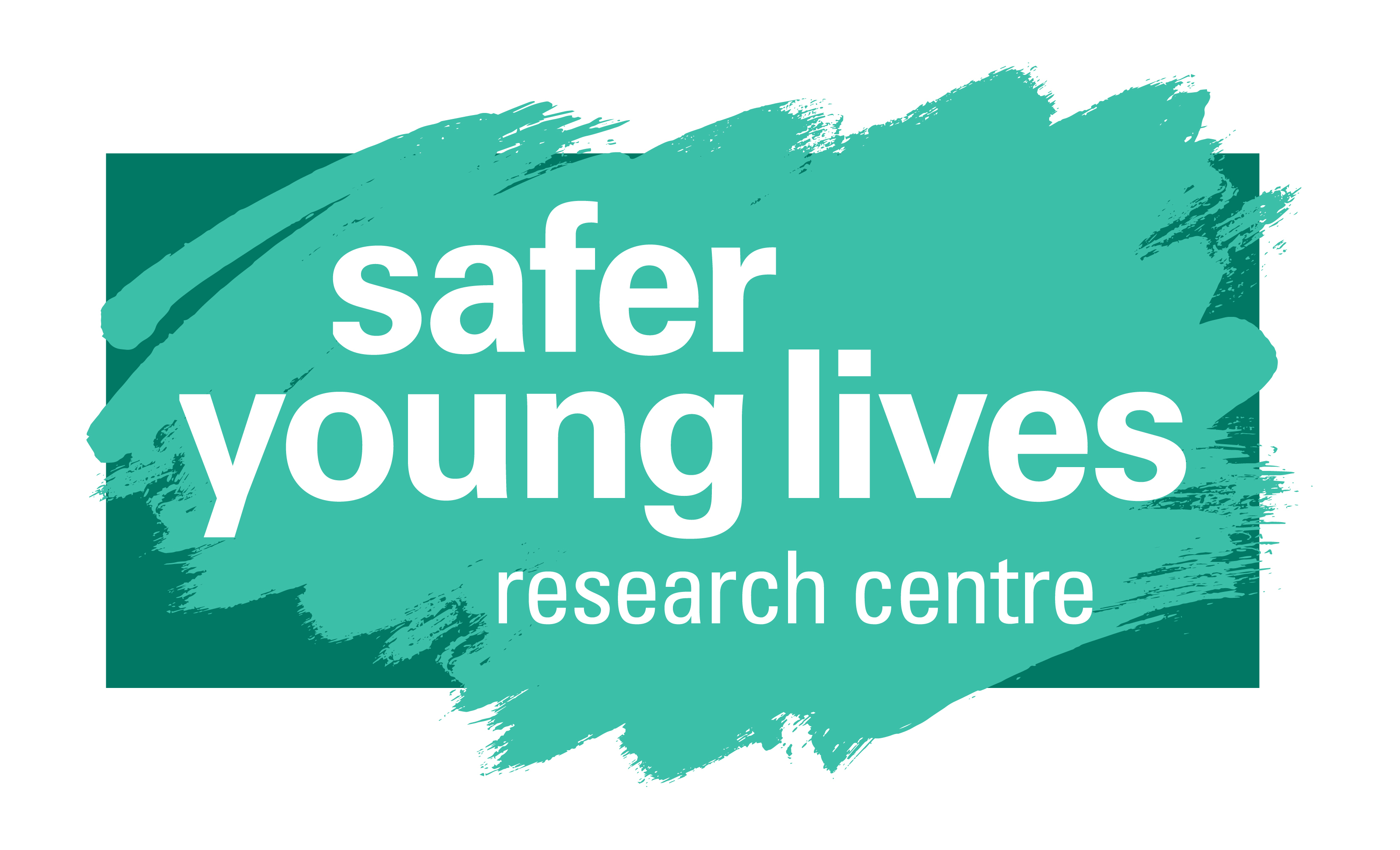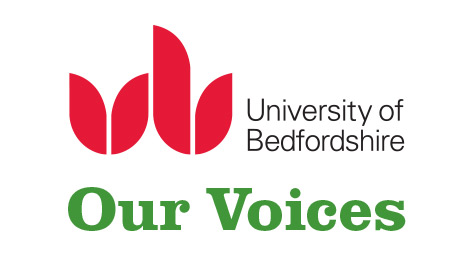What it’s like working with - and being part of - youth advisory groups in the context of research focussing on adolescent health, gender and violence

In September 2022, three research teams – each including youth advisors and academics - came together in an online interactive webinar to share their learning and reflections from working together on research projects spanning issues related to adolescent health, gender and violence.
The three teams included researchers and youth representatives from:
- The University of Bedfordshire’s Safer Young Lives Research Centre and Young Researchers’ Advisory Panel (YRAP).
- The Global Early Adolescent Study (GEAS) and its Global Youth Advisory Board, coordinated by the Johns Hopkins Bloomberg School of Public Health and;
- Accelerating Achievement for Africa’s Adolescents (Accelerate) Hub, a collaboration led by the Universities of Oxford and Cape Town with inputs from one of the Hub’s Teen Advisory Groups (TAG).
All three teams shared different models for engaging young people in the research process and shared lessons learnt from bringing young people together in national, regional and global groups and forums. Despite the variation in models, many of the benefits, challenges and lessons learnt resonated across the different teams. This blog summarises some key themes that were explored during the event and provides details of further resources.
What are some of the key topics and issues to consider when working with youth advisors?
In the run up to the event, there was some discussion between the teams about possible topics and areas to focus on in the webinar presentations. Through these pre-event conversations, a number of potential themes were identified as being relevant to all three teams. This included reflecting on:
- Relationship building and rapport
- Group cohesion across geographies – when young people are based in different locations, countries etc.
- Structures and processes for supporting youth advisory boards
- Considerations when researching sensitive issues
- Supporting ‘transitions’ when young people ‘age out’ or move on from these roles
- Safeguarding
- Inclusion and representation
- Recognition and acknowledgment (specifically around co-authorship of outputs)
- Sustainability of youth advisory groups
Having identified these themes, each team was tasked with preparing a short presentation about their work, and to present perspectives from both youth advisors and researchers on some of these issues.
How were young people involved in the research process in their respective advisory groups?
It was clear from the presentations that all three teams were motivated to work with youth advisory groups as they recognised the importance and need to incorporate lived experience and youth perspectives and recommendations into their research. Presenters discussed how they sought advice from young people to help them identify new research priorities and to improve and strengthen research, advocacy and interventions in the fields of adolescent health and wellbeing.
In all cases, the development of formal youth advisory groups appeared to evolve organically from smaller pieces of work, such as one off consultations with young people. Over time, this led to the development of local advisory groups. In the case of the Global Early Adolescent Study, advisory boards were established in six countries and a Global Youth Advisory Board was then created with youth representatives from each national board. For Accelerate Hub, youth groups were initially developed to shape research projects and research questions, and eventually evolved to advise on policy development and implementation as well as intervention design. For the Safer Young Lives Research Centre team, the YRAP were formed to advise and feed into the research centre as a whole, leading to their engagement in a range of different projects, trainings and external engagements.
During the presentations we heard some examples of the types of activities and projects young people had been engaged in. For example, the Accelerate Hub team shared how their Teen Advisory Group (TAG) members had been involved in identifying new research topics and priorities. This was done through ‘TAG elections’ where they developed their own political manifestos of youth priorities for the coming five years. This guided the research team to incorporate new topics into their research agenda such as adolescent parenthood, stigma, and the relationships between parents and their children.

Key themes across the presentations
Rapport and trust building
It was evident from all three presentations that trust building and taking the time to develop rapport with and between young people was central to effective working. Youth representatives who contributed to the presentations shared how relationships between the facilitators and researchers were critical to young people feeling that their opinions and views mattered, as highlighted by one of the TAG members:
‘I personally appreciate the relationships we had with facilitators, because there were people who were willing to listen to what we had to say and apply that. So, when someone listens to the things that affect us, it makes us feel like we matter.’
The team from Accelerate Hub spoke specifically about the importance of researchers being able to reflect on what it takes to develop that rapport, and the importance of showing vulnerability and sharing something of oneself.
‘[it’s about] curiosity, engaging conversations not traditional research, asking them to share but also asking of ourselves to share… trust in one another to carry and hold one another, do things differently, think about [our] own vulnerability and accessibility as researchers.’
Reflecting on working in local communities in South Africa, this team also spoke of the importance of building relationships with not only the young people, but also with their caregivers and communities to develop those trusting relationships.
Youth representatives underscored the importance of having the opportunity to meet face to face with other members of the group so they could bond and spend time together where they were not just focussing on the ‘work’ but getting to know each other better. For one of the members of the GEAS youth board, their recent youth summit in Indonesia had allowed the global members to come together for the first time and do just this.
Researching sensitive topics
Building trust, and developing strong relationships between young people and research staff was seen as particularly important when working on sensitive topics. One of the YRAP members reflected on why this relationship was so key. She talked about researchers needing to remember that ‘feeling safe is so important to young people, especially for those who have not already experienced safety in their lives.’
She described the importance of researchers prioritising rapport and relationship building within the team and shared what, from her perspective, had been helpful when working with YRAP on topics exploring the sexual violence of young people:
‘There is potential for all discussion to be distressing or upsetting and in researching issues we must be aware of the potential for distress. Young people with lived experience working in research can experience reminders of trauma, oppression, past injustices, frustrations etc. and some young people may experience mental health issues. It’s important to prioritise, safeguard and support these young people. A key part of this is consent and them understanding that nothing is mandatory [and that] they will be supported if they are struggling. Make a plan with the young person when they are feeling triggered, this can help anticipate risks and plan for them. Offer support for a discussion before and after to check in. By providing trusting relationships between members and staff, this helps communication about individuals' preferences, their boundaries and what they want to get involved in and also communication if things do get difficult or upsetting.’
The importance of the relationship was again highlighted here as well as the need to think about how to respond if young people do become upset or need support or referrals during their engagement. Ensuring open communication so that young people can share what they might need before, during or following their involvement in research activities, was identified as key.
Boundaries
Connected to the point above about the need to support young people, this also brought up a tension for researchers. As explained by one researcher during the event, those facilitating meaningful participation may find themselves in a difficult position where the boundaries between research and intervention become blurred.
‘Balancing care and support versus intervention, like we can offer referral and support in those ways but we cannot intervene in persistent problems. So what we find is that there’s this area that is very difficult to be in, you know, a line between being a research project with research goals and not being an organisation that is meant to offer those referrals and those systems of care continuously to help people deal with consistent issues.’
Trying to navigate and find the right space can be challenging for researchers who may have access to ethical guidance, but may struggle to understand and enact boundaries to protect both the young people they work with and themselves.
Language and communication
Two of the three research teams involved members from different parts of the world and both commented on the importance of language. The team from Johns Hopkins discussed how, due to the global nature of their Global Youth Advisory Board, it had been challenging at times due to the multitude of languages spoken. However, creative ways of navigating these issues were found. This included using translation apps, working with translators and finding different ways to interact. The Accelerate Hub team noted how in their work in South Africa, language was also an issue with many of the young people preferring to talk in a mix of Xhosa and English. They also reflected on ‘language’ more broadly, recognising how academic language can be a barrier to young people’s engagement.
However, as one of the GEAS Youth Board summed up in his presentation:
‘We can’t deny that language is actually also one of the barriers but it doesn’t stop us to create meaningful interactions with each other.’
Different ways of connection and being flexible
Youth advisors talked about not only the importance of face-to-face connection but also discussed different ways of staying connected. Facebook, Whatsapp, phone calls and home visits were all mentioned as important avenues for connection. Again, it was felt that tools like Whatsapp also enabled young people to connect and chat more informally outside work time.
Young people reflected on the fact that they all had competing demands on their time and that it was really important that young people could say no to research opportunities. For those working on a global board, the difficulties in finding times that worked for everyone was also noted.
Compensation and remuneration
Whilst not discussed in great depth in the presentations, during break out room discussions a number of questions related to compensation and payment for young people’s time. Again, there were different approaches to this. The Safer Young Lives Research Centre for example employ YRAP members as Youth Advisors and pays them via visiting staff contracts. However, others noted that when young people are advisors but also ‘participants’ in research projects, ethics boards may limit ‘compensation’ meaning that young people’s time has to be acknowledged in different ways for example through food, travel costs and other expenses being covered. On this issue, other webinar participants reflected on the challenges of determining equitable pay in global projects where the cost of living and average income varies dramatically.
Moving forward
Participants on the call talked about the need for more forums for exchange on learning surrounding youth advisory groups. One suggestion was around bringing together youth advisory group members from different projects and studies to learn about different models of engagement and reflect on their learning and perspectives together. It was clear that the youth advisors held a lot of knowledge and experiences and had ideas about how to increase engagement of young people in different parts of the research process. All of the teams shared the importance of being reflective and reflexive and recognising the need to keep checking in with young people and being open to adapt and change as young people moved on and their own needs and priorities change. As one of the presenters remarked ‘we make mistakes along the way’ and for those involved it was clear that there is no one ‘right way’ of engaging young people in research, instead it’s about being open and attuned to what is working and what is not working and being committed to recognising that.
Further reading and resources from the teams:
Cluver et al. (2021) Power to participants: methodological and ethical reflections from a decade of adolescent advisory groups in South Africa. AIDS Care Psychological and Socio-medical Aspects of AIDS/HIV Volume 33, 2021 - Issue 7.
Gittings, L. et al (2022 ) Art-based reflections from 12 years of adolescent health and development-related research in South Africa. Health Promotion International, 2022;37(S2):ii83–ii96 https://doi.org/10.1093/heapro/daac020
Hamilton, CJ, Rodgers, A, Howard, K & Warrington, C (2019) ‘From the ground up: young research advisors’ perspectives on relationships between participation and protection’, Journal of Children’s Services, 14(3): pp. 228–234 doi:10.1108/JCS-07-2019-0037. https://www.emerald.com/insight/content/doi/10.1108/JCS-07-2019-0037/full/html
Remote methods for engaging adolescents and young people in research: Lessons from adolescent advisors in Kenya and South Africa during COVID-19 https://www.heybaby.org.za/poster-presentations/tag-toolkit
TAGazine: a time capsule of arts-based, participatory research activities with adolescents and young people, created on Facebook during COVID-19 lockdowns in South Africa https://www.heybaby.org.za/poster-presentations/tagazine-20202021-facebook-time-capsule
Adolescent Engagement page for Accelerate Hub: https://www.acceleratehub.org/adolescent-engagement/
Youth page for the Global Early Adolescent Study https://www.geastudy.org/youth-voices
YRAP (2021) Participation is Protective! Illustration https://www.beds.ac.uk/media/jqjk3bvc/participation-as-protective-poster-web-3000-72dpi.jpg






